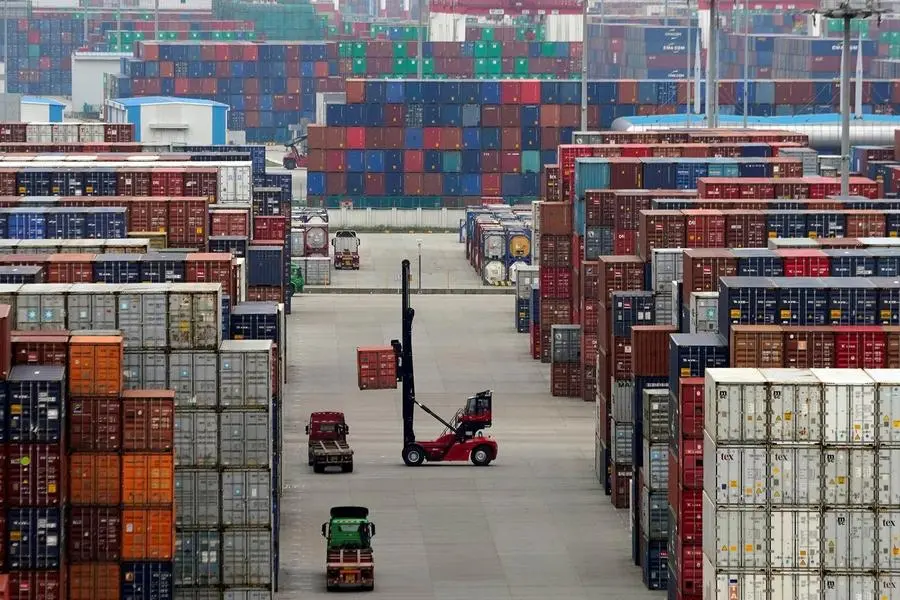PHOTO
BEIJING- China's exports grew for the first time in six months in November, beating economists' forecasts and suggesting factories in the world's second-largest economy may be finding their footing after a bruising slump in demand at home and abroad.
Mixed manufacturing data for November has kept alive calls for further policy support to shore up growth but also raised questions about whether predominantly negative sentiment-based surveys have masked improvements in conditions.
Exports grew 0.5% from a year earlier in November, customs data showed on Thursday, compared with a 6.4% fall in October and beating the 1.1% drop expected in a Reuters poll. Imports fell 0.6%, dashing forecasts for a 3.3% increase and swinging from a 3.0% jump last month.
"The improvement in exports is broadly in line with market expectations... sequential growth in China's exports in the past few months has strengthened," said Zhiwei Zhang, chief economist at Pinpoint Asset Management. "There are green shoots in other Asian countries' export data as well in recent months."
The Baltic Dry Index, a bellwether gauge of global trade, climbed to a three year high in November, supported by improved demand for industrial commodities, particularly from China.
South Korean exports, another gauge of the health of global trade, rose for a second month in November, buoyed by chip exports, which snapped 15 months of declines.
China's official purchasing managers' index last week showed new export orders shrank for a ninth consecutive month, while a private sector survey highlighted the struggles of factory owners to attract overseas buyers for a fifth month.
And yet some analysts point to quicker-than-expected growth in the third quarter and a run of mostly upbeat data from October to argue that recent hard data paints a less gloomy picture of the economic health of the Asian giant than the sentiment-based surveys. The hard data also suggest the support measures trickling out of Beijing since June have had some effect, they say.
"The data shows overseas demand is stronger than we thought and domestic demand is weaker than we thought," said Dan Wang, chief economist at Hang Seng Bank China. "The biggest export items are still electrical machinery and cars, so demand in Europe and Russia will have bolstered outbound shipments."
Analysts say it is too early to tell whether the recent policy support will be enough to shore up domestic demand and how sustainable any uptick in overseas demand is, with property, unemployment and weak household and business confidence threatening a sustainable rebound at home.
The International Monetary Fund in November upgraded its China growth forecasts for 2023 and 2024 by 0.4% percentage points each. But Moody's on Tuesday slapped a downgrade warning on China's A1 credit rating.
(Reporting by Joe Cash Editing by Shri Navaratnam)





















